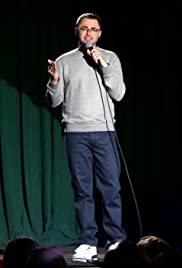Search
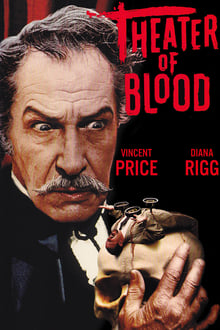
A Shakespearean actor takes poetic revenge on the critics who denied him recognition.
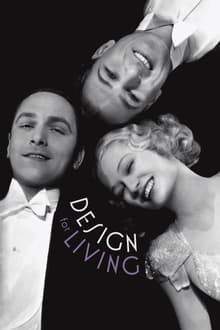
Two Americans sharing a flat in Paris, playwright Tom Chambers and painter George Curtis, fall for free-spirited Gilda Farrell. When she can’t make up her mind which one of them she prefers, she proposes a “gentleman’s agreement”: She will move in with them as a friend and critic of their work, but they will never have sex. But when Tom goes to London to supervise a production of one of his plays, leaving Gilda alone with George, how long will their gentleman’s agreement last?
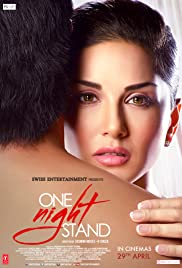
The story is about Urvil Raisingh and Celina who meet at an event and a memorable night later. Returning back home they continue with their lives. The memories of Celina haunt Urvil. What happens next forms the crux of the unfolding drama. One Night Stand explores the hypocritical world we live in. What is it that Urvil wants?
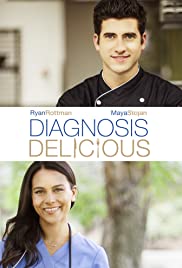
Chef Dave Oberlin’s (Ryan Rottman) career is in shambles when his altercation with a famous food critic goes viral. After being blacklisted by the elite restaurants, Dave is forced to take a teaching position at his friend’s culinary arts school. When cardiologist, Dr. Nina Kirby (Maya Stojan), is up for a promotion at the local hospital the Head of Cardiology informs her if she gets Dave on board to teach the Healthy Living seminars she would be a shoo-in for the position. The only problem is Nina can’t cook and she doesn’t want to learn. With a little coaxing from her best friend and coworker, Olivia (Tanya Chisholm), Nina agrees to take Dave’s class. When Nina presents Dave with the Healthy Living seminars he’s disinterested in working with her due to her lack of class participation. In her effort to persuade him to get on board, Nina and Dave come across some unexpected common ground
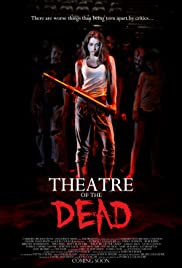
A dance troupe trapped in their theatre by the Zombie Apocalypse discover that the threat doesnt just lie beyond the chained doors, and that there are indeed worse things than being torn apart by critics.
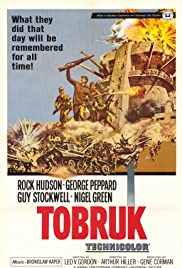
In September 1942, the German Afrika Korps under Rommel have successfully pushed the Allies back into Egypt. A counter-attack is planned, for which the fuel dumps at Tobruk are a critical impediment. In order to aid the attack, a group of British commandos and German Jews make their way undercover through 800 miles of desert, to destroy the fuel dumps starving the Germans of fuel.
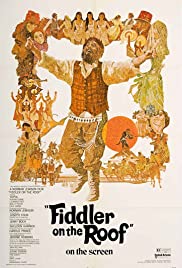
This lavishly produced and critically acclaimed screen adaptation of the international stage sensation tells the life-affirming story of Tevye (Topol), a poor milkman whose love, pride and faith help him face the oppression of turn-of-the-century Czarist Russia. Nominated for eight Academy Awards.
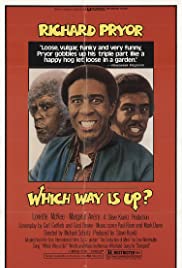
Richard Pryor plays three roles – a beleaguered, sex-starved farm worker named Leroy Jones; the farm worker’s randy old father Rufus; and the hypocritical town preacher Rev. Lenox Thomas – and Pryor has never been so outrageously funny. The lives and love lives of these three men cross and crisscross as Leroy tries to get his life back on track.
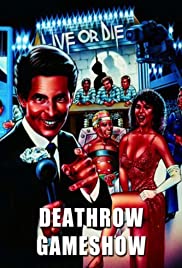
Chuck Toedan’s the host of a gameshow featuring death row convicts competeing in life-or-death contests in hopes of cheating the executioner or, at the very least, winning some nice prizes for their next of kin. Not surprisingly, Chuck has made more than a few enemies, from outraged viewers trying to ban his show, to families of losing contestants looking for revenge. A hitman hired by one such family has shown up at Chuck’s office, and he’ll need to enlist the help of his most outspoken critic to keep from ending up like most of his contestants.
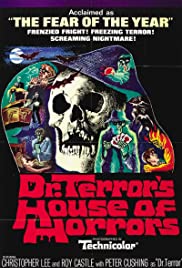
Five strangers board a train and are joined by a mysterious fortune teller who offers to read their Tarot cards. Five separate stories unfold: An architect returns to his ancestoral home to find a werewolf out for revenge; a doctor discovers his new wife is a vampire; a huge plant takes over a house; a musician gets involved with voodoo; an art critic is pursued by a disembodied hand.
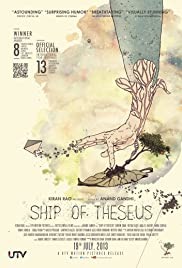
This first feature film from Indian playwright Anand Gandhi, tells three stories about persons forced to think about the ethics and moral issues raised by medical advances: a visually impaired Egyptian photographer, who after a cornea transplant has trouble adjusting to her newfound sense of sight; a devout Indian monk fighting against animal testing, who has to confront his beliefs when he is diagnosed with liver cirrhosis; and an Indian stockbroker, who after having a kidney transplant learns about the illegal trade in stolen organs and decides to help a poor victim of such theft – even though it means travelling all the way from India to Sweden.
The film was first shown at the 2012 Toronto International Film Festival, where it received great critical acclaim and was touted as “the hidden gem of the year”. It was released in India in July 2013, and was awarded Best Feature Film of 2013 at the Indian National Film Awards in 2014.
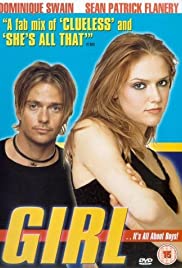
Andrea Marr is a bright, straight-A, mature, 18-year-old high school senior on the verge of womanhood who decides to abandon her sheltered, boring lifestyle and her bookish friend Darcy for a look into the local rock and roll scene as a groupie to local rock singer Tod Sparrow and learn more about the life of one who follows a touring band along with her new friends aspiring rock star wannabee Cybil, outgoing fellow groupie Rebecca, and music critic Kevin.
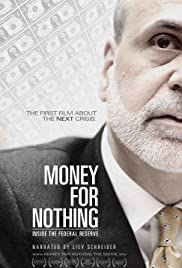
Nearly 100 years after its creation, the power of the U.S. Federal Reserve has never been greater. Markets and governments around the world hold their breath in anticipation of the Fed Chairman’s every word. Yet the average person knows very little about the most powerful – and least understood – financial institution on earth. Narrated by Liev Schreiber, Money For Nothing is the first film to take viewers inside the Fed and reveal the impact of Fed policies – past, present, and future – on our lives. Join current and former Fed officials as they debate the critics, and each other, about the decisions that helped lead the global financial system to the brink of collapse in 2008. And why we might be headed there again.
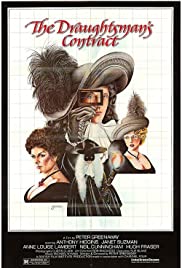
Peter Greenaway’s first fiction feature (after the mock-documentary The Falls) made him immediately famous and was named one of the most original films of the 1980s by British critics. The action is set in the director’s beloved 17th century. Ambitious young artist Mr. Neville (Anthony Higgins) is invited by Mrs. Herbert (Janet Suzman) to make 12 elaborate sketches of her estate. Besides money, the contract includes sexual favors that Mrs. Herbert will offer to the draughtsman in the absence of Mr. Herbert. Entirely confident in his ability to weave a web of intrigues, Mr. Neville eventually becomes a victim of someone else’s elaborate scheme. The film is structured as a sophisticated intellectual puzzle like the ones popular in the 17th century.
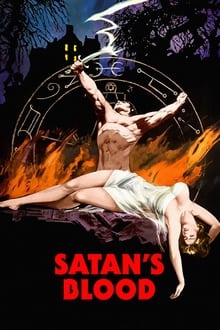
Andy and Thelma, an urbanite couple living in Madrid, leave their apartment for a pleasant day around the city with their dog. They cross paths with Bruno and Anne, a strange couple who invite them to their foreboding country estate. A storm hits that evening and the two stay overnight. The couples engage in a bit of harmless communication with spirits via ouija board, but soon past conflicts arise Thelma had an affair with Andy’s brother, and Anne criticizes Bruno over his attempted suicide. This is only the beginning of all the horrors that will haunt them in the house.
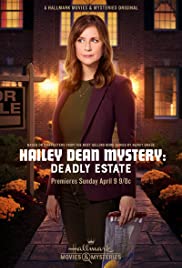
When Hailey helps her friend Pam sell her recently deceased parent’s estate, she becomes suspicious when Pam suddenly leaves town without notice. To make matters worse, Pam’s boyfriend is the sudden victim of an accident and the man Hailey’s dating, Assistant Medical Examiner Dr. Jonas McClellan, falls critically ill. Now Hailey must determine: Are all these events a coincidence?
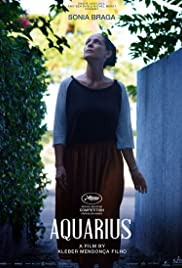
Clara, a 65-year-old widow and retired music critic, was born into a wealthy and traditional family in Recife, Brazil. She is the last resident of the Aquarius, an original two-story building, built in the 1940s, in the upper-class, seaside Boa Viagem Avenue. All the neighboring apartments have already been acquired by a company which has other plans for that plot.
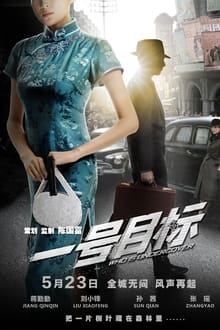
In 1946, to prevent the Chinese civil war, Zhou Enlai who represented the Communists held a talk with the Chinese Nationalist Party, and George C. Marshall, who represented the Americans at Plum Village in Nanjing. A lost notebook stirred the already turbulent peace talk. The ripples alert the three sides and a battle of spy and anti-spy began. Many historical figures like Zhou Enlai, George Marshall, Chiang Kai-shek, Soong May-ling, He Yingqing, Chen Cheng, and Hu Zongnan are depicted in the movie. Other fictional persona such as the ace agent Xiong Huiquan, the female journalist, and a secret spy who belongs to the Confidential Bureau adds tension to the critical moment.
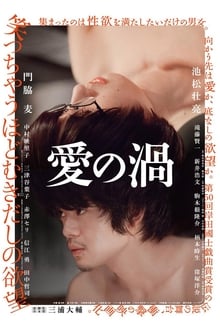
In a fancy split-level condo in Tokyo’s Roppongi nightlife district, four women and four men gather from midnight to 5 am. They’ve all paid to be there (men more than women), and they have only one thing in common–they seek anonymous sex. Using no names, they’re known only by their types: freeter (temp or part-time worker), mild-mannered salaryman, duplicitous OL (office lady), self-conscious working class factory worker, perfectionist teacher, veteran pervert, shy NEET (“not in education, employment or training”) and bashful college student. Together, they unravel their identities in a night of increasing debauchery. Daisuke Miura’s adaptation of his critically acclaimed 2005 play of the same name explores Japan’s fuzoku (sex industry) with depth, humor and freewheeling indecency. This surprising, erotic and disturbing film features breakout performances by Sosuke Ikematsu and Mugi Kadowaki, who are tempted to mix love with sex.
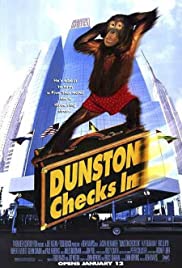
Hotel manager Robert Grant is forced by his boss to postpone his family vacation when a hotel critic checks in. Trouble is, the critic is really a villainous jewel thief with an orangutan assistant named Dunston. When Dunston gets loose and tries to escape a life of crime — aided by Robert’s sons — havoc, hijinks and lots of laughs abound!
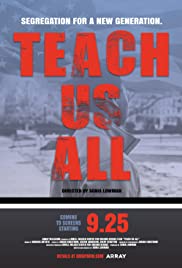
On the eve of the 60th anniversary of the 1957 Little Rock school desegregation crisis, educational inequality remains among the most urgent civil rights issues of our time. With its school district hanging in the balance following a state takeover in January 2015, Little Rock today presents a microcosm of the inequities and challenges manifesting in classrooms all across America. Through case studies in Little Rock, New York City, and Los Angeles, Teach Us All seeks to bring the critical lessons of history to bear on the current state of U.S. education and investigate: 60 years later, how far have we come-or not come-and how do we catalyze action from here?
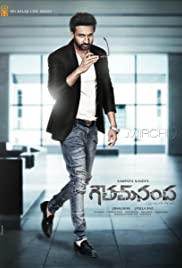
Goutham is a billionaire and his father gives him a year’s time to enjoy his life to the fullest. The deal between the two is that after a year, he’ll take over his father’s businesses. The catch is that, beneath his seemingly perfect life, Goutham is clueless about what happiness or hunger feels like. On the other hand, Nanda, who hails from a lower-middle class background, wants to die rich and his father keeps criticising his aspirations.One fine day, Goutham and Nanda bump into each other, and since both of them are quite vexed up with their respective lives & they decide to swap their places to lead a new life for 30 days.
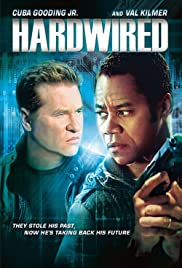
After a tragic accident Luke Gibson is left with critical injuries and complete amnesia. A new technological breakthrough from the Hexx Corporation – a Psi-Comp Implant that’s hardwired into Luke’s brain – saves his life, but Luke soon finds out that this new technology comes with a price and that the Hexx Corporation harbors sinister plans for the new device.
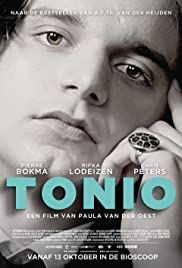
On 23 May 2010, 21-year-old Tonio van der Heijden was hit by a car and taken in a critical condition to hospital, where he died. A tragic event that drastically changed the lives of his parents, who watched their only son pass away in intensive care. Reminded of his life by everything around and inside them, Tonio’s life left a legacy of phantom pain for his parents who mourn, and struggle to prevent their own lives from being dragged into a downward spiral of sorrow.
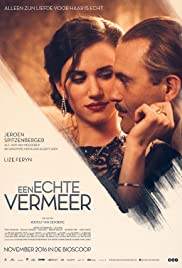
Young and talented Han van Meegeren is a rebel in the early 1920’s Amsterdam art-scene. Because he paints in the style of his idols Rembrandt and Vermeer, critics find his work old-fashioned and they call him a copycat. Just to prove a point, he produces a fake Vermeer and tries to pass it off as a real one. It works. Instead of revealing the truth and thereby embarrassing the art world, he continues to make money off of his many forgeries. Soon he is caught in a web of lies and deceit, and his life spins out of control. Then one day, high ranking Nazi Hermann Göring knocks on his door, looking for a Vermeer for his private collection…
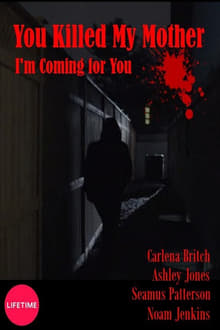
Disturbed teenager Jo Fay loses it and attacks a nurse at the hospital when she is told her critically ill mother won’t qualify for a liver transplant due to her chronic alcoholism. Years later, when she is released from a mental institution, Jo seems normal but harbors a ferocious rage to take revenge on everyone she blames for her mother’s death. Ashley Jones, Carlena Britch star. (2017)
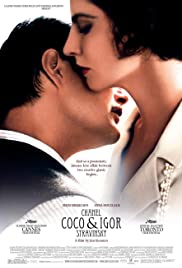
Paris 1913. Coco Chanel is infatuated with the rich and handsome Boy Capel, but she is also compelled by her work. Igor Stravinsky’s The Rite of Spring is about to be performed. The revolutionary dissonances of Igor’s work parallel Coco’s radical ideas. She wants to democratize women’s fashion; he wants to redefine musical taste. Coco attends the scandalous first performance of The Rite in a chic white dress. The music and ballet are criticized as too modern, too foreign. Coco is moved but Igor is inconsolable.
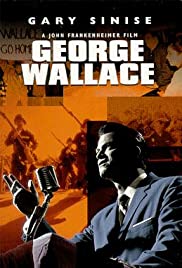
George Wallace is a 1997 television film starring Gary Sinise as George Wallace, the former Governor of Alabama. It was directed by John Frankenheimer, who won an Emmy award for it; Sinise and Mare Winningham also won Emmies for their performances. The film was based on the 1996 biography Wallace : The Classic Portrait of Alabama Governor George Wallace by Marshall Frady, who also co-wrote the teleplay. Frankenheimer’s film was highly praised by critics: in addition to the Emmy awards, it received the Golden Globe for Best Miniseries/Motion Picture made for TV. Angelina Jolie also received a Golden Globe for her performance as Wallace’s second wife, Cornelia.
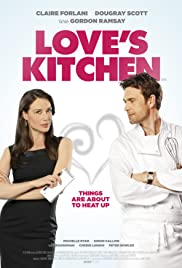
Rob Haley (Dougray Scott), an up-and-coming chef and restaurateur in London, is grief-stricken when he loses his wife. With encouragement from his infamous friend and real life TV Chef Gordon Ramsay, Rob decides to spice up his life by turning a run-down country pub into a gourmet restaurant. His food catches the eye – and taste buds – of beautiful American food critic Kate Templeton (Claire Forlani) and they soon both write a recipe for love that leaves both their hearts – and their stomachs – in full.
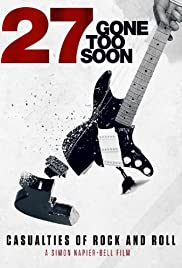
Brian Jones, Jimi Hendrix, Janis Joplin and Jim Morrison all died at the age of 27 between 1969 and 1971. At the time, the coincidence gave rise to some comment, but it was not until the death of Kurt Cobain, about two and a half decades later, that the idea of a “27 Club” began to catch on in public perception, reignited with the death of Amy Winehouse in 2011. Through interviews with people who knew them, such as music stars, critics, medical experts and unseen footage, the lives, music, and artistry of those who died at 27 are investigated with a bid to find answers.
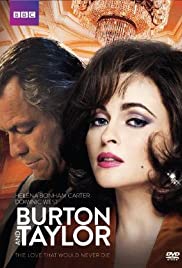
TV drama based on Richard Burton’s diaries, about his last performance in 1983 with ex-wife Elizabeth Taylor. They meet after several years and he agrees to her suggestion that they star in a stage revival on Broadway of Noel Coward’s comedy ‘Private Lives’, although Elizabeth Taylor has never before performed on stage. Burton soon regrets his agreement, however, when her pill-popping and lack of discipline causes problems already during the rehearsals. The play opens to a critical trashing, but is popular with audiences because they just want to see Taylor. After a two month troubled run, the curtain comes down and Taylor tells Burton she has always loved him and still does. A year later he is dead.
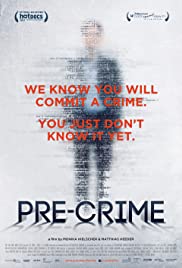
Science fiction has become a reality in our modern criminal justice system. A term originally coined by science fiction author Philip K. Dick, “pre-crime” is a policing technique now used in both the US and Europe to identify “hot people”—those most likely to be victims or perpetrators of a crime. Forecasting software and algorithms that have been criticized as inaccurate and arbitrary are used to collect information, and monitor and flag people. But predictive tools are only as good as the data they’re fed. With scant evidence of the reliability of the data sources or the accuracy of the data crunching, misfires are a guarantee. In this chilling and explosive in-depth examination into the modern age of policing, directors Monika Hielscher and Matthias Heider pose an important question: How much freedom and human awareness are we willing to give to the limited logic of technology?
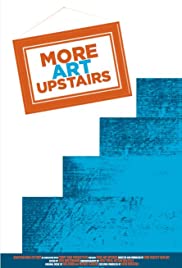
A revolution is taking place in the art world and it isn’t happening in Paris, Berlin or Hong Kong—but in Grand Rapids, Michigan. ArtPrize is the most highly attended art show in the world, and it awards cash prizes larger than all other competitions combined. International critics and general crowds pack bars, galleries and abandoned buildings all over town, taking in over 1,500 works from cerebral conceptualists and weekend hobbyists. An acclaimed jury awards a winner $200,000 and the ballot-carrying public does the same. Nimble cameras follow four artists, each vying not only for critical recognition but for every public vote they can drum up. Part classy game show, part engaging art exploration, More Art Upstairs captures the debates ArtPrize has intentionally (or inadvertently?) triggered: Can culture be democratized? Do artists need or want to connect with audiences? And is the canonical art establishment on its way out? (Myrocia Watamaniuk)
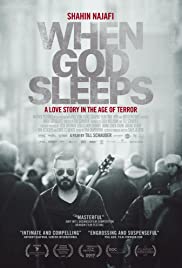
Iranian musician Shahin Najafi flees his homeland and heads to Cologne, Germany after harsh criticism by several clerics over the release of his song speaking out against human rights abuses resulted in a fatwa being issued.
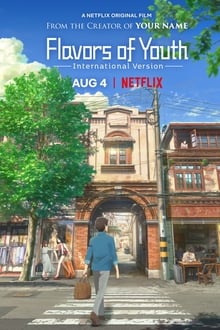
Three different stories of youth set in different cities of China. 1 Shanghai Love. 2 Sunny Breakfast. 3 Small Fashion Show. Directed by Zhenxing Yi, the plot revolves around a young man working in Beijing. He used to live with his grandma in his less developed hometown Hunan. While he is drown in his childhood reminiscence, he receives an unexpected call – Grandma is in critical condition.
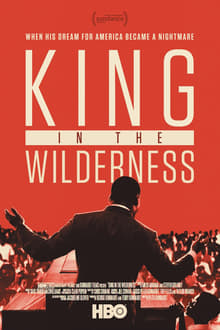
A chronicle of the final chapters of Dr. Martin Luther King Jr.’s life, revealing a conflicted leader who faced an onslaught of criticism from both sides of the political spectrum.
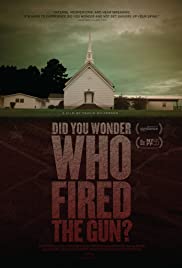
“In 1946, my great-grandfather murdered a black man named Bill Spann and got away with it.” So begins Travis Wilkerson’s critically acclaimed documentary, DID YOU WONDER WHO FIRED THE GUN?, which takes us on a journey through the American South to uncover the truth behind a horrific incident and the societal mores that allowed it to happen. Acting as narrator and guide, Wilkerson spins a strange, frightening tale, incorporating scenes from TO KILL A MOCKINGBIRD, the music of Janelle Monáe and Phil Ochs, and the story of Rosa Parks’ investigation into the Recy Taylor case, as well as his own family history, for a gripping investigation into our collective past and its echoes into the present day.
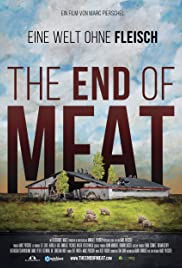
Although evidence of meat consumption’s negative impact on the planet and on human health continue stacking up as animal welfare is on the decline, humanity’s love affair with hamburgers, steaks, nuggets and chops just doesn’t end. In The End of Meat, filmmaker Marc Pierschel embarks on a journey to discover what effect a post-meat world would have on the environment, the animals and ourselves. He meets Esther the Wonder Pig, who became an internet phenomenon; talks to pioneers leading the vegan movement in Germany; visits the first fully vegetarian city in India; witnesses rescued farm animals enjoying their newly found freedom; observes the future food innovators making meat and dairy without the animals, even harvesting “bacon” from the ocean and much more. The End of Meat reveals the hidden impact of meat consumption; explores the opportunities and benefits of a shift to a more compassionate diet; and raises critical questions about the future role of animals in our society.
